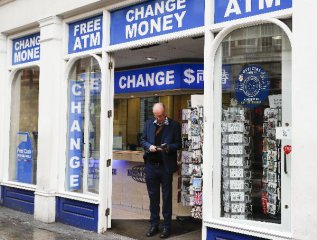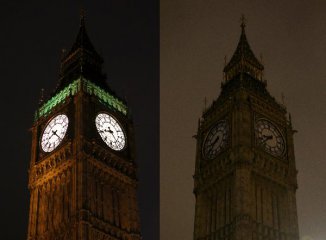
The British economy is performing well despite the uncertainties of the Brexit process, with increased strength going into the third quarter of the year -- performance which appears to endorse the central bank's decision to raise the bank rate at the beginning of last month.
New data on Monday showed the rate of GDP growth at 0.6 percent over the three months to the end of July, three times better than the poor GDP growth figure of the first quarter of this year.
The monthly data for July also showed that the economy got off to a robust start to the third quarter. Monthly GDP growth was 0.3 percent in July, led by strong contributions from services output, which rose 0.3 percent, and construction output, which increased 0.5 percent.
Warm weather and the football World Cup buoyed services output, especially the retail sector, according to the data from the Office of National Statistics (ONS).
Amit Kara, head of UK macroeconomic research at the National Institute for Economic and Social Research (NIESR), an independent London-based economics think-tank, told Xinhua: "It's a very solid 0.6 percent growth -- services continues to do well and manufacturing has all around the world seen a slowdown in output. Construction is also doing well."
"Retail sales has done well, but I don't think that rebound will persist because some of that was related to the warm weather and the World Cup. It is likely to normalize," Kara added.
CONSTRUCTION SECTOR REBOUND
The poor weather of the first quarter meant that construction sector was badly hit, and a rebound in activity in this sector contributed strongly to the good figures.
Construction activity rose 0.5 percent month-on-month in July, led by new private housing construction, and construction output was up 3.3 percent over the rolling three-month period.
Kara commented: "The year started very badly for construction, not doing anything for four or five months and this started before the bad weather. The weather held it back a little and we have now seen a catch-up in construction sector output. This won't last forever, but there is momentum in there."
"That momentum, in construction and services, will ease off but not immediately; manufacturing shows a clear sign that momentum is weaker at a global level and then the UK export orders are also looking weaker."
Third quarter growth looks likely to be strong, said Kara, and it is across all sectors.
"There is no one sector that is driving the UK economy, growth is broad-based," Kara said.
MONETARY POLICY DECISION SUPPORTED
The central bank Bank of England (BoE) raised the bank rate at the beginning of August for only the second time since July 2007, before the financial crisis.
The rise of 25 basis points to 0.75 percent was accompanied by guidance from the BoE governor Mark Carney that future rates rises would be gradual and steady and for the market to expect two further rate rises over the next three years.
The uncertainty of the Brexit process hangs over future policy-making.
The unknown outcome, with everything from continued membership of the European Union (EU) to an exit without any agreement and future trade operating under World Trade Organization (WTO) rules, is possible.
Carney stressed when he announced the August rate rise that Brexit was the most pressing danger for the economy and that interest rates could go down again as well as up under some of the more unfavorable exit scenarios.
However, the continued robust growth across the whole of the economy continues to endorse the BoE's decision to raise the rates and could set the scene for a further rate rise sooner than expected.
Kara said that if there was a soft Brexit, one less disruptive to the current trading arrangements between Britain and the rest of the EU, then he thought the Bank might be tempted by a February rate rise, just one month before Britain's expected EU exit date.
"If this kind of growth persists, then the market should take the NIESR view of a February rate increase seriously," said Kara.
"But Brexit is an important risk -- under a settled arrangement, which has to be a kind of soft Brexit settlement, we could see a February increase, but if there is an unfavorable settlement, an increase is unlikely."






















Latest comments